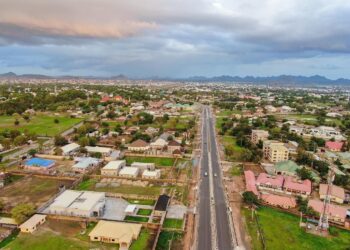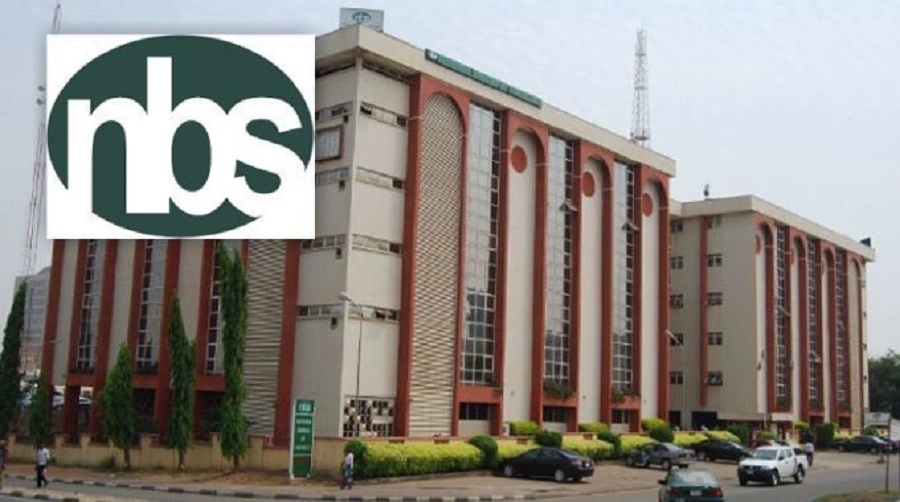The latest import data released by the National Bureau of Statistics (NBS) shows that Nigeria spent a whopping sum of N148 billion to import used Vehicles (popularly known as Tokunbo) in the first quarter of 2019.
According to the NBS report, out of the total N3.58 trillion worth of goods imported in the first quarter of the year, used Vehicles amounted to N148 billion. This represents about 4.63% of Nigeria’s total import in three months.
Nigeria’s top 15 imports
Nigeria’s top 15 imports constitute about 38% of total imported goods in the first quarter of 2019. Basically, the top 15 imported goods were estimated to be valued at N1.35 trillion.
Top on the list is laboratory, hygienic or pharmaceutical glassware product, which was estimated at N517 billion for the quarter. Similarly, the second item on the top 15 list of imported goods is the Premium Motor Spirit (Petrol), gulping the sum of N190 billion. Meanwhile, used vehicles are the third most imported goods into Nigeria.
- 1st – Laboratory glassware – N517 billion
- 2nd – Motor spirit, ordinary – N190.7 billion
- 3rd – Used Vehicles – N117.4 billion
- 4th – Imported motorcycles – N95.3 billion
- 5th – Gas Oil – N62.2 billion
- 6th – Machines – N56.7 billion
- 7th – Durum wheat (Not in seeds) – N43.8 billion
- 8th – Durum wheat, Seed – N43.8 billion
- 9th – Sugar Cane – N34.5 billion
- 10th – Lubricating oils to be mixed – N41.6 billion
- 11th – Used Vehicles – N31.4 billion
- 12th – Vehicles (petrol fuel engine) – N30.8 billion
- 13th – Other machine-tools – N29.3 billion
- 14th – Other Herbicides – N24.8 billion
- 15th – preparations for infant use – N23.3 billion
Billions spent on Used cars
An earlier analysis of data obtained from the U.S Department of Commerce shows that Nigeria imported used vehicles worth $526 million (N161 billion) from the U.S in 2018, as against $284 million (N87 billion) in 2017. This implies that a large chunk of Nigeria’s foreign exchange is spent on imported vehicles.
Since 2015, the total amount of money spent on the importation of vehicles from the U.S only rose significantly. Further analysis of the NBS data shows that between March (2018 and 2019), Nigeria spent the sum of N417.66 billion to import used vehicles.

Is Nigeria a dumping ground?
Importation appears to be one of the major banes of the Nigerian economy. This explains why car importation has surged over the years. The figure provided by the bureau, to say the least, omitted smuggled cars. Smuggled items and the importation of sub-standard goods have led to the death of several companies.
Recently, the CBN announced that it has concluded plans to close the bank accounts of smugglers. While this is a step in the right direction, it may not curb the importation of used cars.
Nigeria’s automobile policy: One would wonder why Nigeria’s automobile industry has been at a standstill for many years.
In 2014 the Federal Government increased import tariffs and duties on imported new and used vehicles to as high as 70 percent, while reducing tariffs on semi-knocked down and complete knocked down vehicles and assembly machinery to a range of 0 to 10 percent.
Five years later, the rigmarole still lingers as used car importation gulps billions of naira. According to the Managing Director of VON Automobile Nigeria Limited and Chairman of the Nigeria Automobile Manufacturers Association, Tokunbo Aromolaran, revealed;
“Nigeria had about five or six booming auto industries in the 70s; they all died because they couldn’t compete against the imports from China and Southeast Asia. The industry was redefined by the Auto Policy as most of you know. We have achieved partial success as envisaged when that policy was put together. Partial, in the sense that not all the requirements of the policy have been or is being implemented as it should.
“Today, South Africa has a full auto industry. They can produce everything from ink to the final car, including engine blocks. BMW is there, Mercedes is there, Toyota is there, Volkswagen is there. South African blacks like you and I are on the floors of the factories, producing those vehicles. Nothing says that Nigerians could not do the same.”
How this affects the Nigerian economy
Increased importation of used vehicles would affect innovation and production of vehicles in the country. As a result, the Federal Government’s auto-policy needs to address this.
- Industry sources have revealed that the Nigerian customs’ revenue is going down due to fewer vehicles coming through the ports, hence, FG loses billions of naira.
- Demand for foreign exchange to pay for the imported vehicles may also cause undue pressure on Nigeria’s fragile exchange rate system.
- Lastly, rising importation of used cars is a quick way to discourage investors in the automobile industry, and further dampens hope of revitalising the sector.


























This is intriguing.
However why does USED VEHICLES occupy the 3rd and 11th position on the list of Nigeria’s Top imports?
Thank you Brian. Over time, the splitting has been done by NBS in that order, further information will be provided on it when available
Until the basic infrastructures such as power, road, rail and the security are fixed Nigeria companies will not be able to compete with companies in USA, SA etc. Let the government first provide environment that will enable these companies compete effectively in terms of cost, quality and reliability, thereafter, we will be able to stop importation successfully.